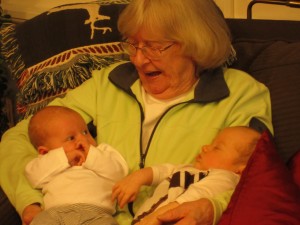A woman bishop, a president, and a solution to the migrant and refugee crisis
By Robert Fontana
You may have never knowingly met men and women who are living in the United States without documentation, but you have certainly benefited from their presence. As Episcopal bishop Mariann Edgar Budde reminded the newly elected president on inauguration day, these are…
“…the people who pick our crops and clean our office buildings, who labor in poultry farms and meat packing plants, who wash the dishes after we eat in restaurants and work the night shifts in hospitals. They may not be citizens or have the proper documentation, but the vast majority of immigrants are not criminals. They pay taxes and are good neighbors. They are faithful members of our churches and mosques, synagogues, and temples.”[1]
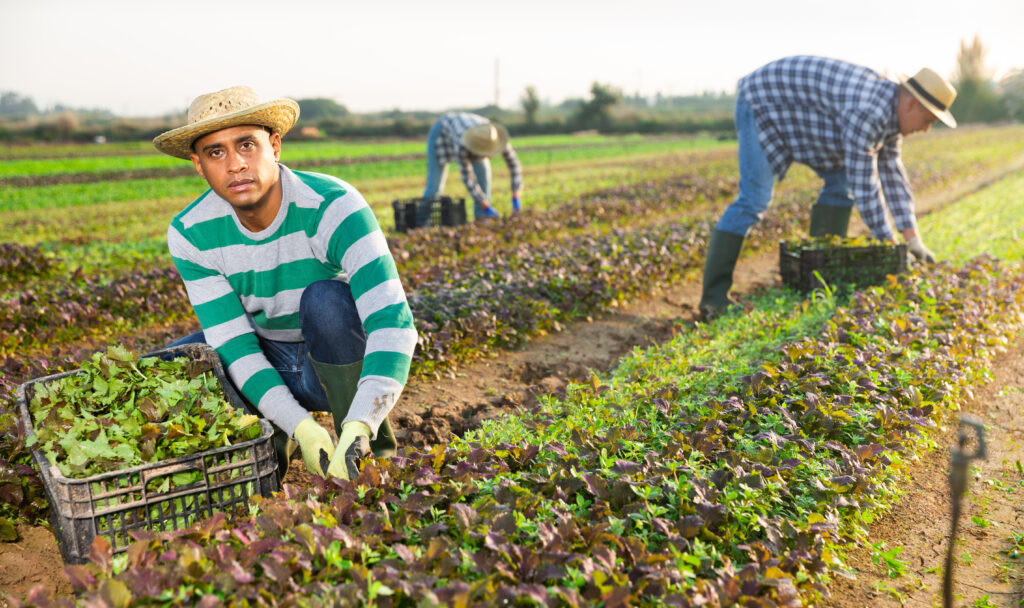
There is no accurate method for determining the precise number of people who are unauthorized immigrants. In 2022, the Office of Homeland Security estimated the number to be about 11 million.[2]
Keep in mind that the wealth of this nation is built on the backs of these hardworking, good and humble people. And the MAGA world led by Trump, many who are farmers, ranchers, contractors, hospital managers, CEOs and CFO’s of companies, and also ordinary citizens who directly benefit from the labor of migrants, have embraced the Trump scapegoating of them as “rapists, murderers, and criminals.” A few may be, but the vast majority of them are not!
(See: https://www.factcheck.org/2018/06/is-illegal-immigration-linked-to-more-or-less-crime/)
Bishop Mariann pleaded with the new President: rather than treat them as criminals, could he honor their dignity and show them mercy:
Let me make one final plea, Mr. President,…I ask you to have mercy…on those in our communities whose children fear that their parents will be taken away and that you help those who are fleeing war zones and persecution in their own lands, to find compassion and welcome here. Our God teaches us that we are to be merciful to the stranger for we were all once strangers in this land. May God grant us the strength and courage to honor the dignity of every human being, to speak the truth to one another in love, and walk humbly with each other and our God for the good of all people. The good of all people in this nation and the world.[3]

I completely agree with Bishop Mariann. However, I don’t think she went far enough. Rather than simply asking for mercy for migrants and refugees, Bishop Mariann ought to have proposed a solution that would benefit the country and probably give President Trump a new constituency of supporters: citizenship for all migrants and refugees who seek it and have no criminal record.
While in the seminary in 1976, I was part of a community of students who welcomed refugees from Vietnam, one who became my roommate. Lori and I helped resettle refugees from Cambodia in the 1980’s. The individuals we helped, and the thousands helped by non-profits across the country became good citizens, excellent employees, owners of small businesses, and taxpayers. The same happened after the passage of the Immigration and Reform Act of 1986 under President Reagan, giving men and women living in the US without documentation a path towards citizenship under certain conditions. Did some commit crimes? YES, but very few. Did most settle in, they and their children quickly integrating into American life? A resounding YES!
With Biden’s executive action on June 4, 2025, the southern border was tightened up and essentially closed. Border and migration tension have intensified under Trump. Now is the time to change direction. Stop deporting migrants and refugees who are here doing the grunt work that few native-born Americans want to do.
Lori and I and two of our daughters have worked on the border. We have seen firsthand the young, hardworking, resilient, courageous, creative, and intelligent men and women, many with their children, who have made the long journey from their home country to the USA. Their home countries are losing the best and the brightest, their greatest assets and talents, their youth, to migration.
The US is not being “overrun” by these migrants, we are benefiting from them! In giving the undocumented migrants and refugees a path to citizenship, Trump would succeed in keeping the harvest picked; the elderly and infirm well cared for; meat cut, packaged, and sent to stores; and small migrant-owned businesses continuing to serve the local community. After these welcomed migrants become citizens, they will remember at the next election which party cared for them and acted on their behalf.

Mass deportation of migrants and refugees is not the answer to their undocumented status. Citizenship is. Citizenship is in the US’s self-interest. It is also the just and Christian thing to do. It is how the Gospel mandate to welcome the stranger, feed the hungry, clothe the naked, care for the sick could be implemented nation-wide.
[1] https://carmenmccain.com/2025/01/22/transcript-of-bishop-mariann-budes-sermon-during-the-2025-us-inaugural-prayer-service/
[2] https://ohss.dhs.gov/sites/default/files/2024-06/2024_0418_ohss_estimates-of-the-unauthorized-immigrant-population-residing-in-the-united-states-january-2018%25E2%2580%2593january-2022.pdf
[3] https://carmenmccain.com/2025/01/22/transcript-of-bishop-mariann-budes-sermon-during-the-2025-us-inaugural-prayer-service/
If you can’t be like mother Teresa, be like Paula Mitchell
by Lori Fontana
I want to tell you about a very special person, though she may not appear special. She’s not rich or famous. You won’t read about her in the news. If you walked by her on the street, you probably wouldn’t notice her. Her hair is white; her step is slow; her hearing is failing; her hands are worn and sometimes she needs a hand to help open a jar.
But she is a beautiful woman; and she is a saint. “How so?” you might ask.
Well, I know that every day she is the hands and feet, the heart and voice of Jesus for the people with whom she lives. I follow her through the halls of her assisted living home and the adjoining nursing care home, through the dining hall, the chapel, and across the courtyard patio. Everywhere she goes, she greets each person she sees. She smiles and says each person’s name, reaching out to pat a hand, caress a shoulder. She inquires about a family member or what was served for lunch or an upcoming outing. She always introduces me, and as I greet her friends, she tells me an interesting fact or talent about each one.
The people she greets may be seated, bent over in a chair, laboriously pushing a walker, painstakingly guiding a wheelchair, or gallantly shuffling along. Always, they beam in response to her greeting, her inquiries, her gentle touch. There are some who grasp my arm to pull me closer and tell me how welcoming she is, how she helped when they first arrived, how she found a lost item for them, brought a meal to their room, refilled their teacup, showed such care for them.
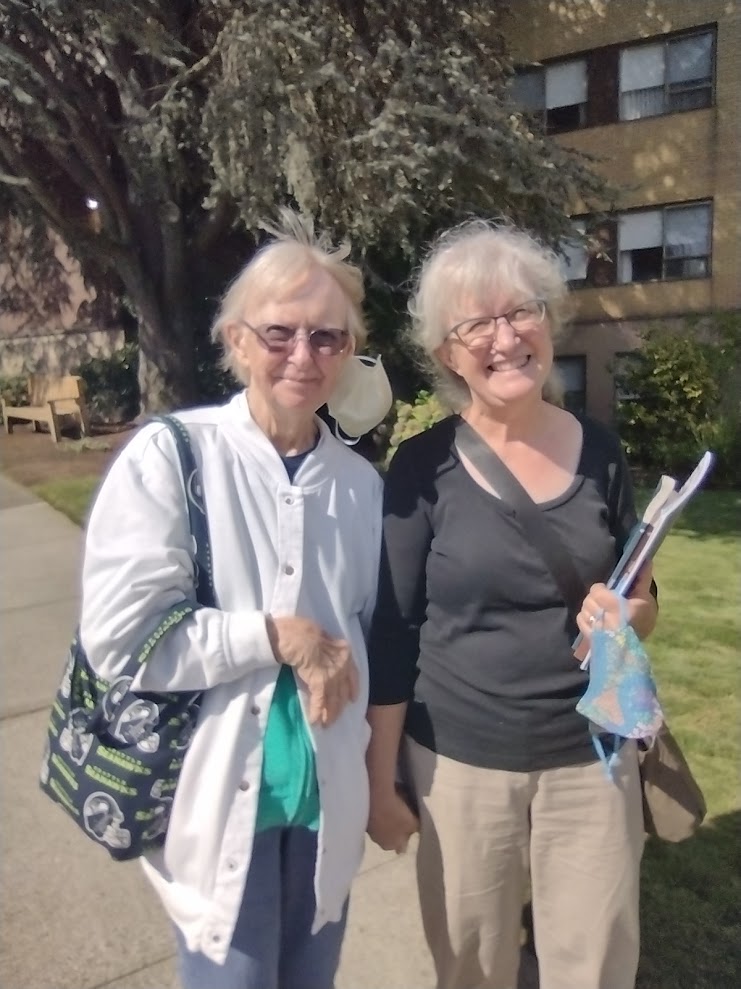
This special lady is my mom, Paula. She’s an ordinary woman in ordinary circumstances. But she has made some simple yet profound choices to live her life in an extraordinary way—the way of sainthood. St. Therese of Lisieux extols the “Little Way” of loving and following Jesus. St. Teresa of Avila knew that most of us make our journey to God in modest, often obscure ways of simply loving God and neighbor. One of her well-known prayers illustrates our common call to sainthood along a humble path:
“Christ has no body now, but yours.
No hands, no feet on earth, but yours.
Yours are the eyes through which Christ looks compassion into the world.
Yours are the feet with which Christ walks to do good.
Yours are the hands with which Christ blesses the world.”
Our vocation as Christians calls each of us to be Christ for others, wherever we find ourselves, in the providence of our everyday lives. Interestingly, my mom told me that she has changed since she moved into assisted living. She has become more outgoing, more willing to speak up, speak out, and speak to others, even folks she does not know. She confided, “I was not like this for a big part of my life. I was quiet and shy,” she said. “Not anymore. I feel confident and emboldened to speak to others, to help others, who are, perhaps, going through a hard time. I know what they are feeling, and I want to help.”
As her daughter, I know she has lived as Christ’s eyes, hands, and feet throughout her life, as a mom for many, many years in the family home. A good friend of ours pointed out at his mom’s funeral that Jesus is describing his mom (and I would say, most mothers) in Matthew’s last judgment scene:
“For I was hungry and you gave me food, I was thirsty and you gave me drink, a stranger and you welcomed me, naked and you clothed me, ill and you cared for me, in prison and you visited me.” Matt 25:35-36
This tells the story of our mothers. They have fed us, clothed us, cared for us. Jesus’ call to us is to do the same for whomever is in our circle of life. Perhaps it’s our own children; our parents or siblings or other relatives. Perhaps we have a neighbor who is elderly or alone or struggling. Maybe it’s a co-worker, a teacher or student, the person in the car ahead of us or in the grocery check-out line behind us.
Indeed, we are all called to be saints. Probably, none of us will be as influential and well-known a saint as Mother Teresa. But I do believe that we can all be like Paula—acting as Jesus would, being his hands and feet and voice, for each person we meet.
Homespun Homily: Seeing others with the eyes of faith
By Lori Fontana

What a day! In just one day, I feel like I encountered the breadth of humanity: young and old, rich and poor, people of all colors and in so many life circumstances. Let me describe.
The day began with seeing our two grandsons off to school. They are bright, curious boys with long, scruffy hair and skinned knees from soccer games and wrestling with each other in the yard. They are loving and sassy, at times cooperative. at other times, sullen and belligerent. Their lives stretch before them, filled with possibilities.
I then headed to the nursing home where my mom lives. She’s 94 and only recently has needed more care. Six months ago, she spent her days playing Scrabble or Bingo, visiting with other residents, attending prayer in the chapel, and even doing her own laundry. Now, she is pretty much confined to her wheelchair, as her legs have now decided they can’t reliably support her. Though physically declining, she is still gracious and caring to others. As we ate lunch with some other residents, she paused between bites to comment to her neighbor, “You look so nice in that red blouse,” and “Try those mashed potatoes; they’re delicious today.”
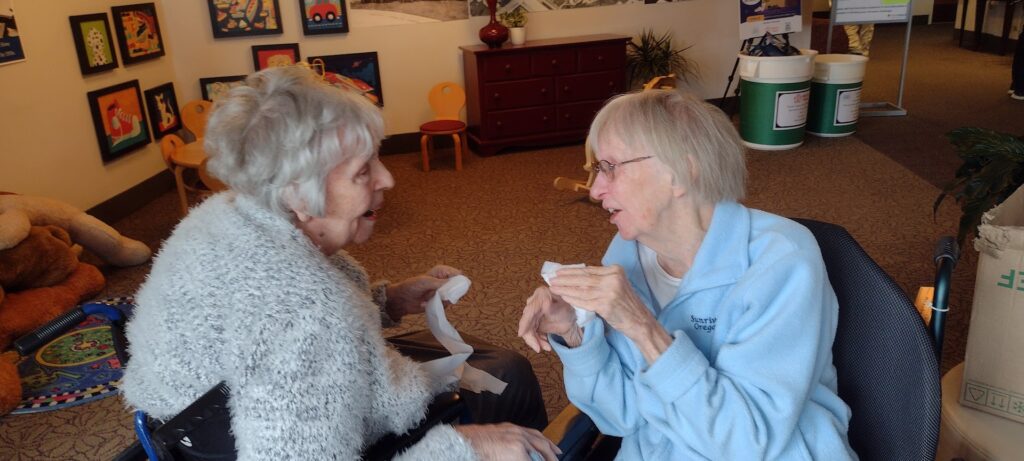
The other residents at her table were not as aware as she is; some don’t speak at all. But my mom spoke to them with gentleness and kindness. She honored them by greeting them, even when they were unable to respond.
During the meal, I noticed the nursing home staff: the busy nurses who distributed medications and charted medical notes; the aides who cheerfully visited with residents, answering questions, handing someone a drink of water, or helping some residents eat their meal. There were the housekeeping staff members – sweeping, mopping, preparing plates of food, washing dishes. Almost to a person, these were people from the four corners of the earth: Eritrea, Somalia, China, the Philippines, Mexico. They worked with a quiet dignity, showing loving respect to all the residents as well as to each other. Even when a resident was sad or agitated, the atmosphere remained peaceful and caring.
After lunch, I wheeled my mom to the first floor where there is a preschool and nursery. From the hallway, we could look into the “toddler room” through floor-to-ceiling windows. We saw little cherubs of all shapes and colors playing dress-up, cuddling with stuffed animals, painting, climbing, twirling, and at times bumping into each other or grabbing a toy. It was messy and joyful with runny noses and squeals and tears. What energy and zest! These young ones brought smiles to my mom and me, as they do to all who behold them.
From my lovely visit with my mom, I caught a city bus home. The bus riders were people of all colors and dress. There was a lovely African American woman seated next to me, looking tired but serene, reading a book, perhaps returning home after a day’s work.
Ahead, at the front of the bus, sat a young couple. Their clothing was disheveled; their hair appeared unwashed and uncombed. They carried large bundles and bags and a bulky box of Pampers. While the young man gazed out the window, the young woman leaned forward, seemingly exhausted and trying to sleep. The bus jostled her back and forth, and I worried that she would tumble into the aisle. But she didn’t. I could imagine that the couple was taking respite on the bus, warming themselves and enjoying a few moments of peace.
Behind me was a middle-aged man who, halfway through the bus ride downtown, began to talk loudly as if having a conversation with someone. Gesturing with his hands and shaking his head, he rummaged through a plastic bag on the floor in front of his seat. His loud behavior indicated some mental suffering or illness.
My initial reaction was fear and anxiety. But then my thoughts turned to an awesome truth. This man is a child of God. Yes, he appears to be suffering or perhaps not quite in his right mind. He needs care, far more than I could give. But he is a child of God.
So too the young couple, trying to get a few moments of peace surrounded by their worldly belongings on a bus – they, too, are children of God. As I thought back over my entire day: my bus companions, exuberant toddlers, the tired elderly folks, my mom, our grandchildren … each is a child of God, God’s beloved.
Life has a way of wearing us down, clouding our true nature. After just a short time of living, we’re not as bright and shiny, carefree and joy-filled as those little two-year-olds. We suffer, we doubt, we fall, we fail, and in the end, we know we will die.

But God wants more for us. God does love each one of us with an unconditional, everlasting love. When I embrace my deepest identity as God’s beloved, then it’s so much easier to open my heart to all my sisters and brothers. I can look beneath life’s tarnish and see that here in the nursing home, here on the bus, here in the nursery, here in my own home, each person is a child of God.
How does that truth make a difference? It means I look upon each person I meet with reverence. I can smile and say hello. In some cases, I’m able to help with a listening ear or directions. In other situations, it may not be wise to approach or speak to the person, but I can look with kindness upon them and say a prayer that they receive the help they need.
One more little story: as I waited at the bus stop that day, a middle-aged woman asked me for money. I replied that I didn’t have cash, but would she like to share my fig cookies? She declined and started to walk away, but then turned back, and we had a short friendly conversation. Rather than drawing back in fear, I had reached out with a humble offer, and we shared a holy moment.
It’s a good reminder: all of us begin life as innocent, pure babies. Then life happens, and we become a bit scuffed and scraped, enduring challenges and disappointments. We are all wounded. But can I rise to the call of our faith? Can I see into the heart of each person and know them as God’s beloved?
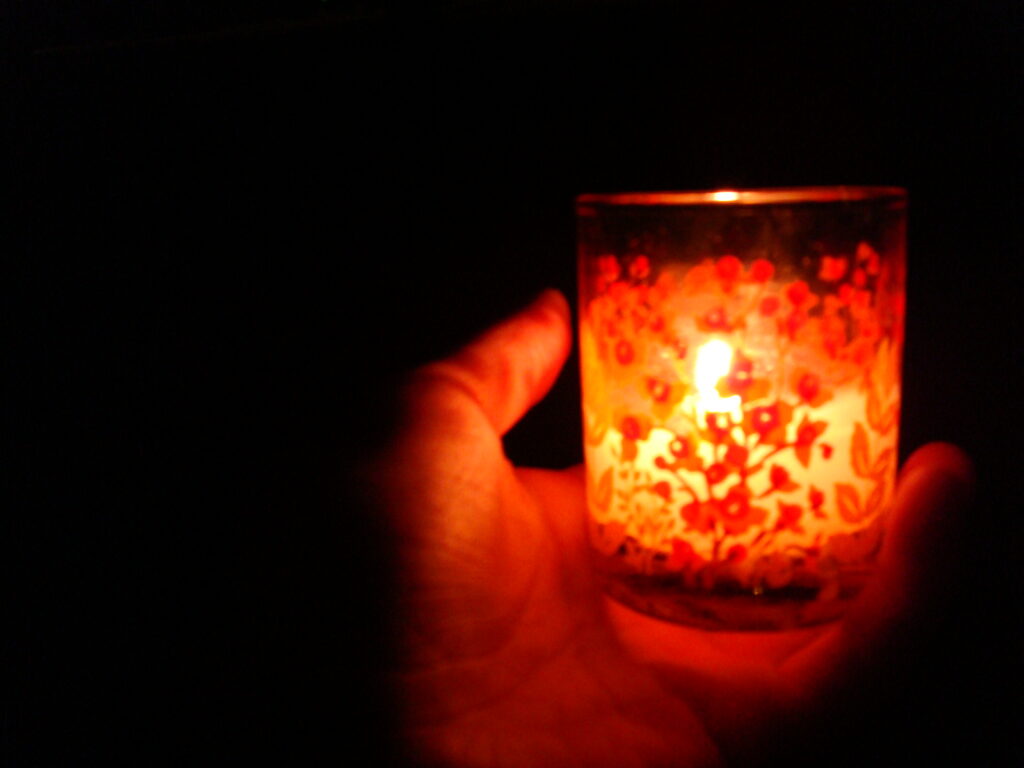
The Month of All Souls and the Altar of Remembrance
By Lori Fontana
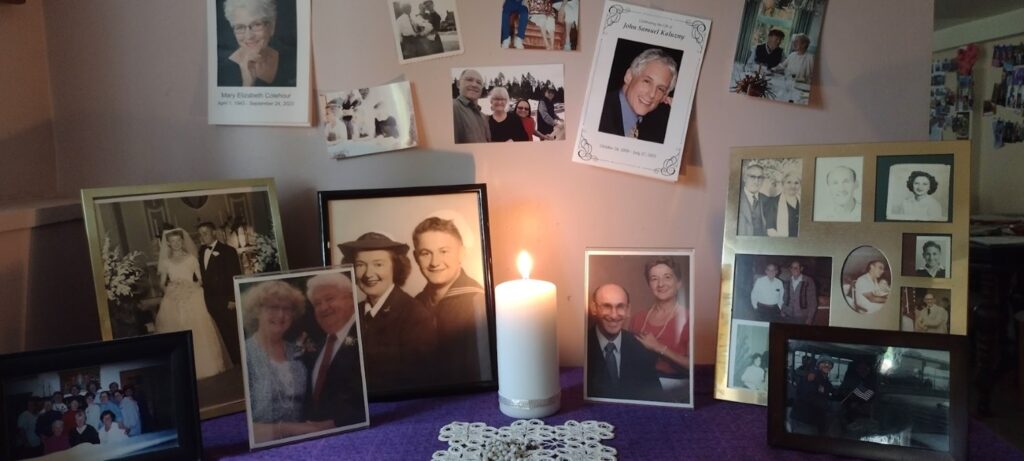
The Feast of All Saints (the feast day for ALL of us) and the Feast of All Souls—remembering our loved ones who have gone before us. Two great feast days of our church which provide the occasion to grieve and remember, to celebrate and honor. Every November, we set up an “All Saints / All Souls” altar in our home.
We gather photos of our family members and friends who have died, both recently and long ago. We display the photos on a tabletop with a nice cloth covering, candles, flowers, and other momentos which remind us of our loved ones. Through our faith, we believe that loved ones who have died are still close to us, in the communion of saints. Our November altar brings them near, reminds us to pray for them, prompts us to honor them, helps us to grieve and let go. Perhaps you can create your own home altar for this prayerful month.
HOPE IN THE RESURRECTION
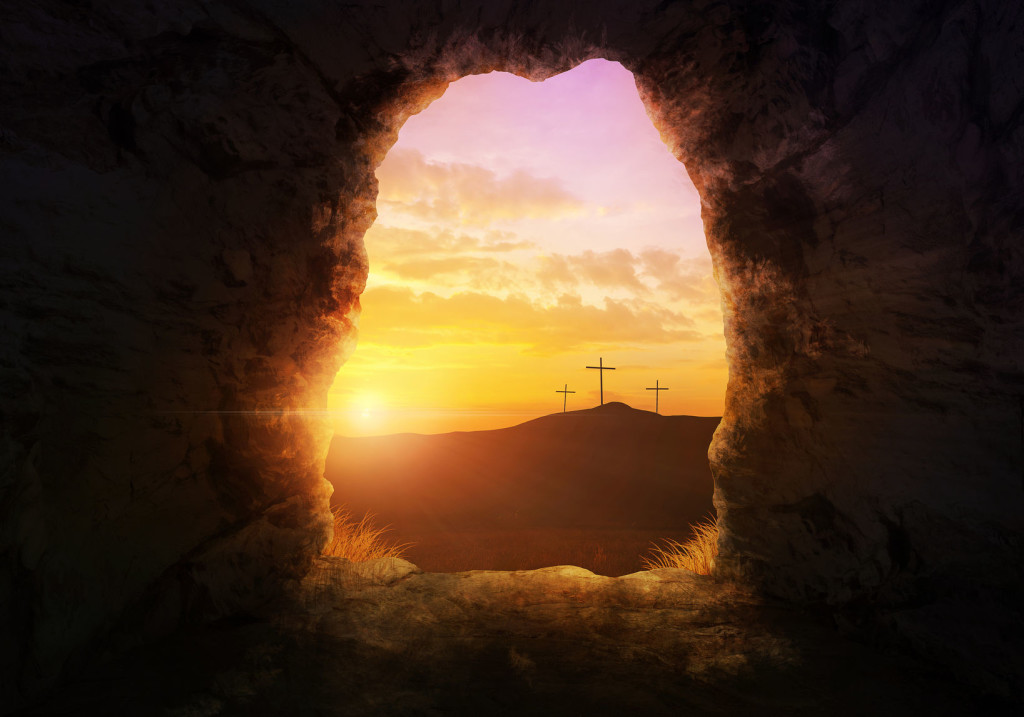
Wisdom 3:1-6 The souls of the righteous are in the hand of God, and no torment shall touch them. They seemed, in the view of the foolish, to be dead; and their passing away was thought an affliction and their going forth from us, utter destruction. But they are in peace. For if to others, indeed, they seem punished yet is their hope full of immortality; Chastised a little, they shall be greatly blessed, because God tried them and found them worthy of himself.
1 Thessalonians 4:13-18 We do not want you to be unaware, brothers and sisters, about those who have fallen asleep, so that you may not grieve like the rest, who have no hope. For if we believe that Jesus died and rose, so too will God, through Jesus, bring with him those who have fallen asleep. Indeed, we tell you this, on the word of the Lord, that we who are alive, who are left until the coming of the Lord,* will surely not precede those who have fallen asleep. For the Lord himself, with a word of command, with the voice of an archangel and with the trumpet of God, will come down from heaven, and the dead in Christ will rise first. Then we who are alive, who are left, will be caught up together* with them in the clouds to meet the Lord in the air. Thus we shall always be with the Lord. Therefore, console one another with these words.
Homespun Homily: We don’t choose how we’re going to die but we can choose how we’re going to live!
By Lori Fontana
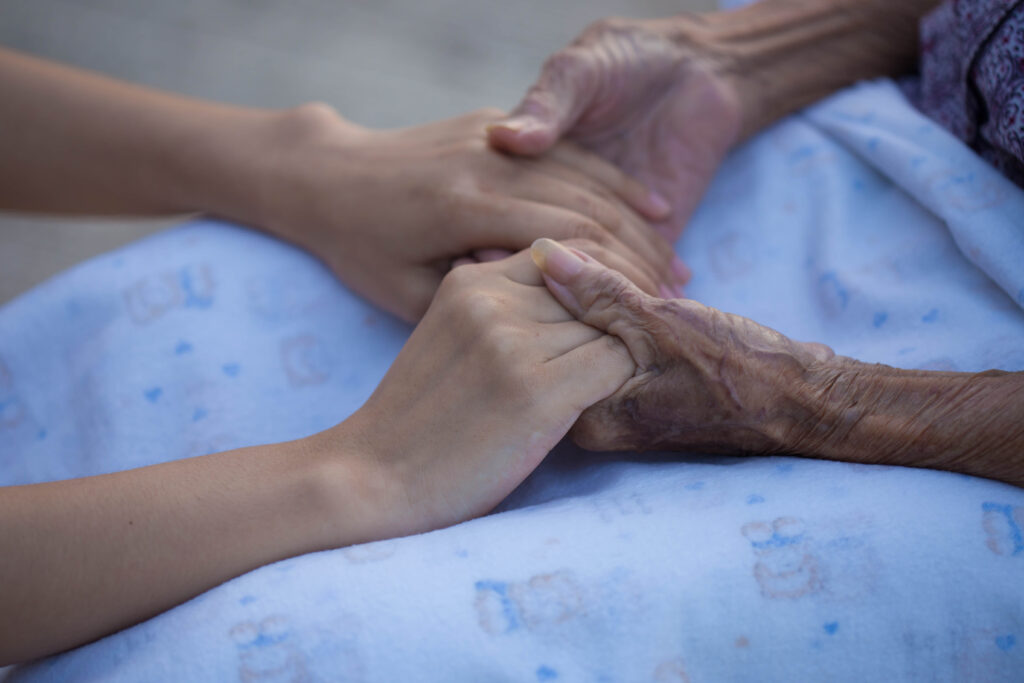
We don’t think it’s gonna happen to us. Mostly, I think we try to not think of IT at all. Aging. Dying. But it’s happening to each one of us. Right now. With every breath, every step, we’re growing older; we’re closer to our death.
This has become a daily reflection for me over the past year, even more so in the past few months. In 2023 – 2024, a dozen of our friends, people very close to us in our life circle, have died. Some had lived long fruitful lives. Others died too soon. Death came from illness or accidents; a few died from old age.
Very recently, a family member’s health has declined rapidly, and I’ve helped to care for her. It’s a beautiful task, humbling…and hard! From being quite independent 6 months ago, she now pretty much needs constant care – physical help for daily activities and compassionate reassurance throughout the day.
For several days, I tried to manage her care in my home and very quickly realized that I don’t have the strength, skills, or adequately safe environment for that. But her time with us in our home was so precious. We shared laughter, memories, family stories. We put our heads together to do the newspaper’s daily “Word Jumble.” We watched awe-inspiring and silly animal videos on YouTube – baby seals and brightly colored birds doing their mating dances. We went for short walks, I pushing her wheelchair, to see the fall colors and the rainbow of dahlias still in bloom.
Sometimes there was confusion: “Where am I?” “Why don’t my legs work anymore?” “Why am I so sleepy?” And, “God, why am I still here, on earth?”

These are questions we may all have as we age, if and when we stop to reflect on the reality that we will all die. This is a hard truth, but it’s not bad. It’s the circle of life, and it’s part of God’s plan which leads us to eternal life. Oh, we can choose to face death with fear and resistance or even complete denial. OR we can live our lives and face our death with thanksgiving and perseverance. As my loved one pointed out one morning, “We Christians don’t choose how we’re going to die… but we can choose how we will live each day.” And she so graciously does choose kindness and love each day and shares this with others.
For me, it boils down to two actions of the will – gratitude and trust. What can I thank God for today? Large blessings – I live in a safe, prosperous country (with problems, yes, but a good place overall); I have an abundance and variety of good food; I have a warm bed at night; I have loving family and friends. The list is long. And then there are small graces – morning coffee with cream; the hummingbird outside my window; the laughter of grandchildren; a good-night kiss from my beloved.
There now is science that proves that a grateful heart contributes to overall happiness and well-being, and even longer life! It’s not hard to foster the habit of gratitude. Try making a “Gratitude List,” and add to it every day. Or give thanks to God each evening before you sleep – tell God what you are grateful for from the day just lived.
The other habit I’m working at is TRUST. I think it’s a matter of asking, “Do I believe in God or not?” God promises to be always with us (Joshua 1:9); to supply our needs (Philippians 4:19); to give us good gifts (Luke 11: 9-13) and the desires of our hearts (Psalm 37:3-4); to bring good from our trials (Romans 8:28); to not try us beyond our abilities (1 Cor 10:13). Can we act out of these promises, through times both good and difficult?

Where are we headed? What is our future? I think these are worthy reflections for us at any age. If we’re realistic and honest, these questions can guide our living, day-to-day. God doesn’t promise to take away all difficulties and challenges. But God does promises love and grace and to be with us through it all. That can make all the difference. When we trust God’s love and presence, we can have a grateful heart every day of our lives.
Homespun Homily by Lori: A Day at the Shelter
Sunrise is about 5:45 these days. I know because the curtain on my east facing window hangs about three inches above the bottom of the window. The morning sky is beautiful, heralding another HOT desert day.
Morning duties begin by 6:30. Unlock the many doors of the house. Fill the giant cooler with ice and water. Turn off night lights, empty garbage cans, restock the bathrooms with TP and clean hand towels. And perhaps most important, brew the morning coffee.
The “casa” is quiet at this early hour except for the chorus of birds singing in the patio. In the background are the sounds of whirring and voices and traffic from the construction site next door. On most days this is the calm before the “storm.”
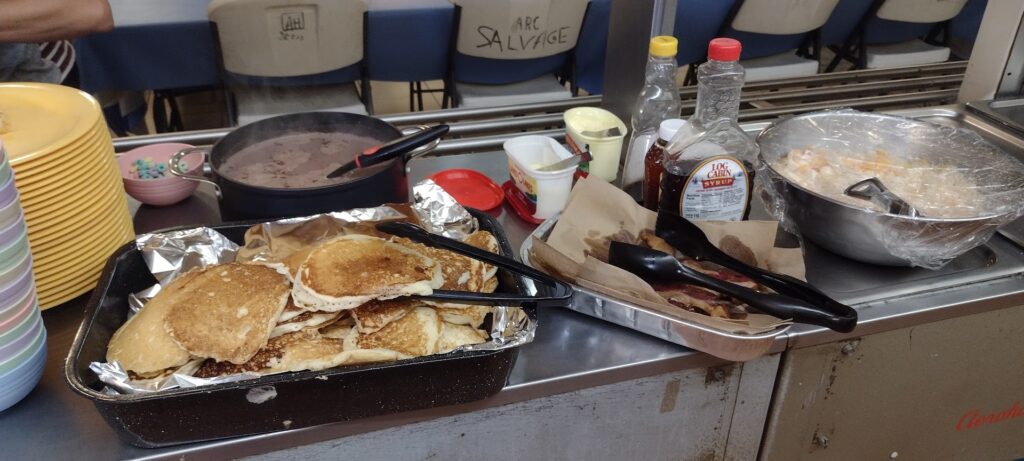
Before the 8:15 breakfast, the church bells peal, announcing the daily 8:00 Mass at the church next door. Then there is the laughter and padding of little feet, the toys banging and the occasional cries over sharing a toy among the several young children staying here. Very slowly, adults appear in the hallways, tired eyes and tousled hair. All of us wish for a little more sleep.
Each day is structured around meals and chores, and appointments for health issues, school registration, and immigration paperwork. There is family to contact, travel arrangements to make. At 10 every morning there is a YouTube English lesson for young and older to learn the English alphabet and vocabulary for time, money, days of the week, body parts, verbs. English is a difficult language –because there are rules…and, oh, by the way, there are all those exceptions to each rule.
As much as we plan out each day, there are always surprises. In our six weeks here, there have been “field trips” to the nearby shopping center and a water spray park. There have been medical emergencies, clinic and dental visits, a brand-new baby, and many last-minute grocery runs for cooking oil, avocados, pinto beans, or ice cream. There have been the everyday ailments of scrapes and coughs, headaches and mosquito bites. And we’ve enjoyed the fun of Bingo, a pizza party, a sidewalk chalk art show, a dance, and bi-lingual karaoke on the patio.
There have been many trips to the airport and a couple of walks with guests to the bus station in the middle of the night, though we really discourage those late-night, early-morning departure times. Many of our guests have never traveled by bus or plane. They are anxious because they don’t know what to do on a plane or bus, nor do they completely understand where they are going.
However, there is a wonderful network of people here to help, providing duffle bags and backpacks and food for the journey, and there is even a group of people who greet the departing migrants at the El Paso airport and accompany them through security and all the way to the door of their airplane.
There are planned weekly events to look forward to: a community member comes once a week to help in the kitchen and prepare a delicious meal. Fr Iggy, a Franciscan friar, celebrates Mass with us in our lovely chapel every Wednesday and usually stays for lunch to visit and share his joy and compassion. Sister Guadalupe leads a prayer group twice a week for whomever wants to attend. Participants sing and pray, reflect and share stories of their lives and their faith. Sister concludes her visit with a sweet treat for everyone and a raffle drawing for a prize for one lucky winner. (Robert and Lori pictured below with Sr. Deidra, an immigration lawyer.)
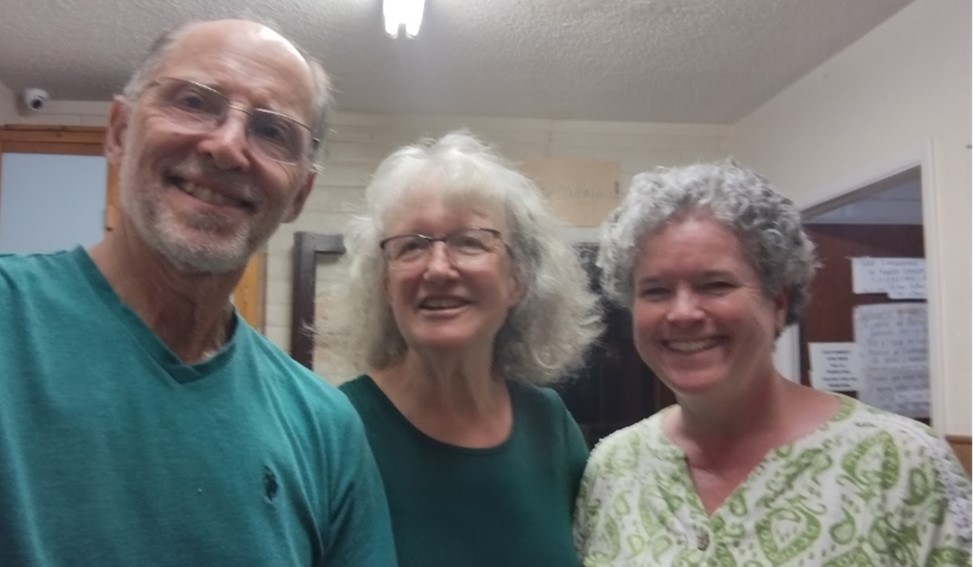
We’ve had ice cream cones and water balloon tosses, cooling off in the sprinkler and watching fireworks in the neighborhood for the 4th of July. We rounded up lots of coloring books and washable markers for our budding artists PLUS there is an artistic community member who has helped the children (and some of the adults) paint pictures and decorate rocks and mold playdough into imaginative sculptures. We even got some novels in Spanish to make a little library for the teens and adults. And every night after supper, there is a popular movie in the “sala” (community room), dubbed in Spanish.
Life in the shelter, Casa Papa Francisco, is mostly the normal day-to-day life. But there are also the hopes and dreams, the fears and anxieties of our guests, who are desperate for a better life for themselves and their children. In this country, all of us, except for the Native American peoples, have in our family tree ancestors who journeyed to here with these same yearnings, the same hopes for safety, enough food, and the dignity of work with just pay. Can we extend welcome to this new generation of migrants?
Homespun Homily: Notes from the Border
By Lori Fontana
How bad would it have to be that you would choose to leave your home, your extended family and friends, your country, and perhaps even your children or spouse to travel to a place where you desperately hoped life would be better? How bad?
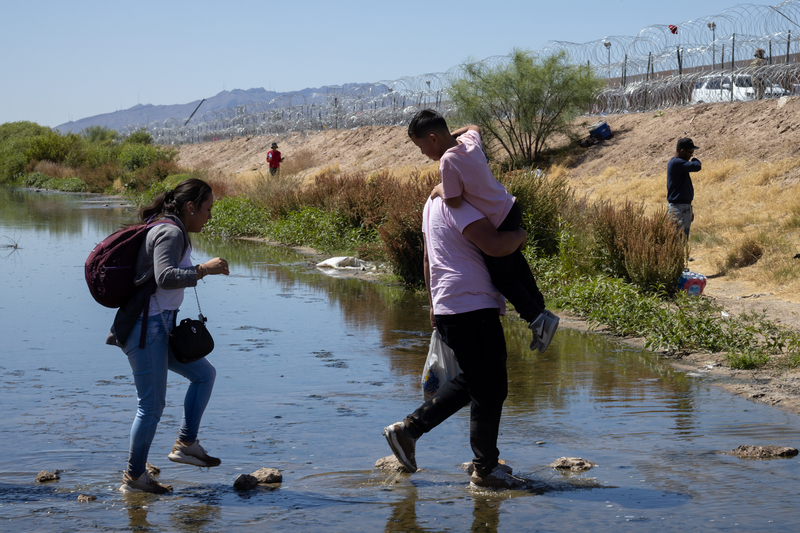
How bad would it have to get for you to choose to travel thousands of miles – not via plane, train, or bus, but crammed in an open train car, or locked in the windowless trailer of a semi, or walking through thick jungle teeming with poisonous snakes and insects, through hostile cities plagued by corrupt police officials, through barren desert, with no relief from the heat, the tiredness, the hunger and thirst?
These are the “travel” stories we’re hearing here at the border. The people we meet are beautiful and brave. They arrive at our shelter having endured trauma, first in their own communities which are unstable, at times to the point of collapse, under the weight of high inflation, few jobs, and high- priced and / or scarce food and necessities.
Many have endured physical deprivation and abuse on their journey. They’ve paid their life savings to hire a “coyote” who promises safe passage, but instead they have been mistreated with verbal and physical violence or even left stranded along the way, without food or water.
Some of our migrant guests have been the target of gang violence. They’ve been threatened, extorted, beaten, stabbed. One person who wouldn’t cooperate with the local gang was thrown into a pond of crocodiles. Gang members have threatened to kidnap or kill their children and other family members.

As I see it, and as our guests tell of their own experiences, it becomes apparent that people migrate to our United States of America for two basic reasons: lack of food / work and threat of violence. And I very much believe that if faced with either of these scenarios, I, too, might risk everything to end up in a place where I could find a job and have enough to eat, where I could send my kids to school and to bed each night without worrying that they might be kidnapped or killed.
Our borders, immigration – it is all very complicated; and yet, it’s simple. Native Americans were the first inhabitants of this land from sea to shining sea. And all of the rest of us are immigrants or come from a line of migrants to this country. Being a U.S. citizen is not the result of anything we’ve done – we were just born here! Many don’t see it this way. Loud voices decry migrants of today – they’re taking our jobs, crowding our schools, packing welfare rolls.
But, please, open your eyes. Look around. On an ordinary day in my hometown, someone delivered my newspaper (I still read one!) to my doorstep; someone cut my hair – both recent migrants. I rode the city bus – the driver was from west Africa; I ate some Thai food – the chefs were from Thailand. I passed a shoeshine stand, a laundromat, a nail salon – each of the proprietors was a recent immigrant. Our doctor is from China and our dentist from Korea.
How many “Help Wanted” signs do you see each day? Restaurants, hospitals, construction companies, schools, tech companies, daycares, retail stores, parks departments, farms and grocery stores – all segments of our economy are begging for workers. Where will they come from?
In 1886, in New York Harbor, the Statue of Liberty was dedicated. Did you learn Lady Liberty’s inscription as a school kid?
Give me your tired, your poor, your huddled masses yearning to breathe free, The wretched refuse of your teeming shore, send these the homeless tempest-tossed to me. I lift my lamp beside the golden door! ~Emma Lazarus

In the 1880’s, the tired and poor coming to our “golden door” were O’Malleys and Salvatores, Bukowskis and Ovrelids (like my grampa from Norway), Schmidts and the English counterpart – Smiths. Today it’s Sanchezes and Aguileras, Fouches and Bekeles, Smirnovs and Wangs. People yearning for, and willing to work for, an opportunity at the “American Dream.”
If the Statue of Liberty doesn’t compel you to reflect on immigration in 2024, I hope you will turn to the words of Jesus:
“For I was hungry and you gave me something to eat, I was thirsty and you gave me something to drink, I was a stranger and you invited me in, I needed clothes and you clothed me, I was sick and you looked after me, I was in prison and you came to visit me.” Matthew 25:35 – 36
It is clear that our immigration system needs work. In the meanwhile, as Christians we are challenged that migrants are “Jesus” at our door. What part am I called to do? I can’t fix the global problems. But I can welcome the stranger at my door and offer a cup of cold water. This is the mission of Annunciation House.
Resurrection of the Body
By Robert Fontana
Happy, Holy Easter! Because of the resurrection of Jesus, we proclaim in the ancient Creed: “I believe…in the resurrection of the body, and life everlasting.” I was reflecting on this truth following the deaths of a number of friends whose remains were entered into the earth. I wondered, if earth could speak, what would Mother Earth say to the corpus of one being laid to rest with hope in the resurrection of the body. This is what came to me:
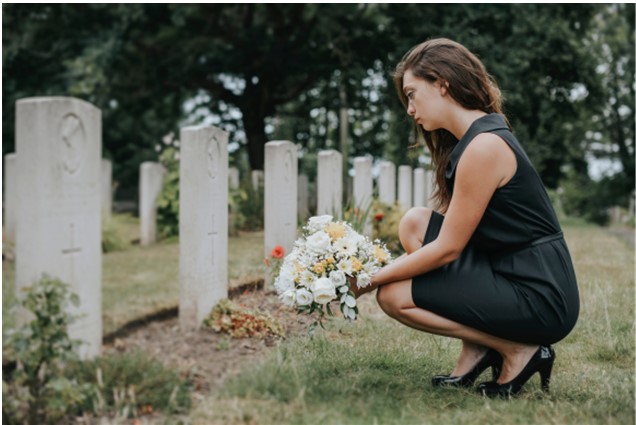
Mother Earth’s Letter to the Corpus of Friend
Dear Body of Friend, O holy corpus, O sacred bones and skin! Friend has been called home; you are still here. He has stepped into God’s time; you are left on earth time. I know you grieve your soul’s departure, the soul that animated your flesh and bones, that breathed air into your lungs, and sent life-giving blood through you heart. Be patient, O sacred corpus of Friend, in God’s good time, you will be united again.
In the meanwhile, you, O beautiful and grace-filled flesh and bones of dear Friend, you will be returned to the earth, to the soil from which you came. Earth comes from the stars and the galaxies, which in turn come from the Great Beginning when God unleashed the Spirit’s creative powers into the universe. Earth, like a tender mother, through powerful and mystical forces guided by the Spirit, gave birth to the great seas and land masses, to the creatures of the air, water, land, and those below the land, and finally, in the last age, to woman and man.
You, sweet body of Friend, holy relic, are being returned to the soil that gave you birth. Do not be afraid. I will hold you until that great day when the dead shall rise, and you have been fully reunited with Friend in the transfiguration of the dead. Until then, be at peace.
Homespun Homily by Lori: The Chaplet of Divine Friendship
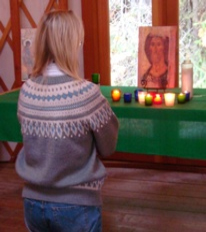
During the months of lockdown in the pandemic, one benefit we enjoyed was that Robert and I grew in our appreciation of the Chaplet form of prayer. We prayed the Divine Mercy Chaplet with family members and friends over Zoom. Soon we discovered the sung version of this chaplet, which I especially enjoy praying and singing through.
Eventually, Robert developed our own simpler form of the chaplet type of prayer, calling it the Chaplet of Divine Friendship. The format is very similar to other chaplets, with an introductory prayer, the antiphon chanted before each of the five “decades,” and the ten repetitive short prayers, prayed in the call and response pattern.
The chaplet prayer has much in common with the rosary. Its repetition allows for calm reflection. It doesn’t require a lot of thinking but rather touches the heart and the spirit. This is one reason why I appreciate this form of prayer so much – when I pray / sing the chaplet, my worries are pushed to the side. My anxious thoughts are drowned out by the simple declarations of faith in the chaplet’s prayers. Praying the chaplet helps me in my everyday life. It is a form of contemplative prayer.
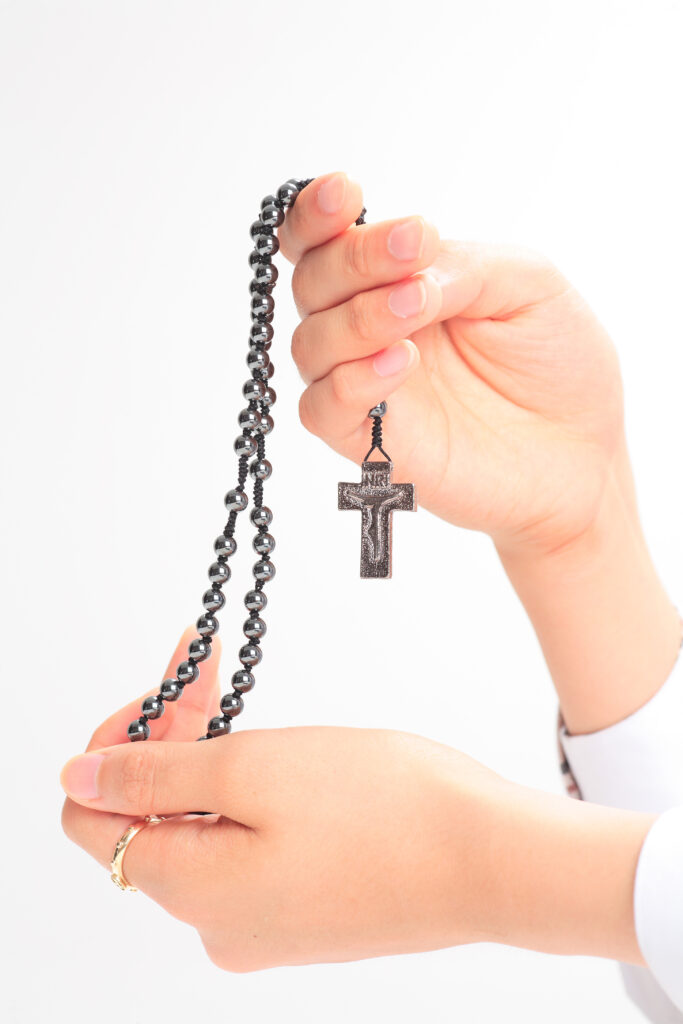
I pray it when I’m driving – I can hum the prayer and still pay close attention to the crazy Seattle traffic. I pray it when I’m waiting – in grocery check-out lines or at a grandchild’s soccer practice. I pray it when I’m walking to the post office or library, when I’m worrying about a problem as I wash the dishes or clean the bathroom, when I awake in the night and can’t sleep. Increasingly, I’ve been intentional about turning to this simple prayer because I KNOW it’s so much better, so much more productive than complaining or ruminating or drowning in “what if’s.”
We hope that you will take a look at the Chaplet of Divine Friendship which we’ve recorded at this YouTube link: https://youtu.be/xX_idGXc-20
Try it for Advent. Use your rosary to help you keep count of the chaplet decades. May it be a help to you, a calming, encouraging reminder of the great love of Jesus for YOU.
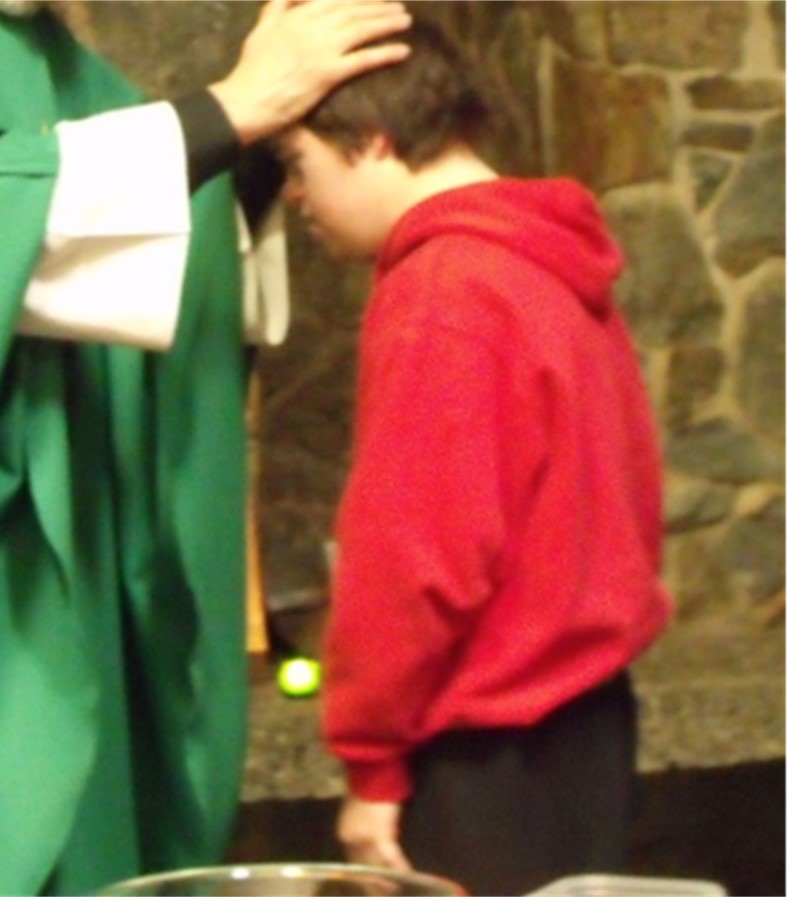
An Advent Spiritual Practice: The Chaplet of Divine Friendship_________________________________________
Opening Prayer – In the name of the Father…Abba Father, Lord of heaven and earth, you created woman and man in your image and likeness and planted them in the garden of earth to love one another and to care for the flora and fauna of the earth. You did not leave them alone but walked alongside them as you walked alongside our biblical ancestors Abraham and Sarah, Isaac and Rebekah, and Jacob and Rachel. And in the fullness of time, you sent your beloved Son Jesus, to be not merely our Lord and Savior, but our friend. Jesus said, “I have called you friends, for everything that I learned from my Father I have made known to you.” (John 15:15) (5 decades)
All– Abba Father, so loved the world, he gave His only Son, not to condemn the world but to save everyone, to save everyone.
Leader – Jesus our brother, kind and good (10 x’s)
All – I trust in you, I trust in you.
After the 5th decade:
Closing Prayer: Abba Father, Lord of heaven and earth, thank you for giving us Jesus as our friend and brother. Help us to return His friendship by being attentive to the Holy Spirit’s working in our lives and in the world and having the courage to follow the Spirit’s prompting always. In the name of the Father…
Homespun Homily by Lori: Puzzle Wisdom for Marriage
“How do I love thee? Let me count the ways.”
So begins a famous poem, Sonnets from the Portuguese 43, by Elizabeth Barrett Browning. These lines came to mind as Robert and I completed a 1000-piece puzzle depicting the city of Seattle. 1000 pieces! There were many moments when we sighed and said to each other, “Look how many pieces we still have to do! This is hopeless. We’ll never get this done.” One thousand pieces – let me count them!

But after six weeks of working on the puzzle, we finally pushed in the last piece. At the end, it looked as if we were missing two pieces, but we found them, one under the table, and the last one hidden in the sofa cushions, as the sofa was pushed up against the table on which we had spread out those thousand pieces.
Why do I write about our completing a big puzzle? Because working a puzzle is good for marriage. Think about it. Putting a puzzle together requires many of the same skills as building a strong marriage: teamwork, patience, awareness, creativity, and checking in with each other: innumerable times I asked Robert, “What do you think this piece with a little red splotch and squiggly dark lines looks like?” Together, we also frequently consulted the picture guide that came with the puzzle – our puzzle roadmap, so to speak.
A successful marriage requires teamwork because marriage is a team effort. If our marriage is healthy, we will have many shared goals and use our gifts to help each other reach those goals. When Robert succeeds / wins, so do I. When Robert fits one or three or a dozen more pieces into the puzzle, it helps me to see where some of my puzzle pieces go. Our marriage has give and take, times when I support Robert, times when he picks up the slack for me. So I applaud each time he fits a puzzle piece in; he cheers me on when I finally discover where that piece with the red splotch goes.
Patience – now there’s a big one.
Countless times, I picked up a puzzle piece, sure that I knew where it went, only to set it back down again in the jumbled pile of loose pieces because it just didn’t quite fit there. Patience is essential in marriage. Why? Because nobody’s perfect. Life is entirely a learning experience from start to finish, and we are learning as we go. We shift life’s puzzle pieces this way and that until finally, alleluia, one settles perfectly into place. Ahhhh, what a good feeling that is. But if we give up too soon, we won’t discover where that darn piece goes.

Each puzzle piece is small and only a tiny part of the whole. Sometimes we have to step back to see the whole picture. Thus, awareness is invaluable. With this puzzle, we grouped pieces into “sky,” “buildings,” “boats,” and “water.” That helped. Looking at the whole scene, we had a better idea about where each piece might fit. At times in our marriage, we have to stop and take in a larger view. The day-to-day routine of work, family, activities, cooking, shopping – these are the building blocks of life, essential but not the whole picture. It is so helpful to take a breath and see the whole of our marriage.
For this, prayer is invaluable, our own personal prayer and prayer as a couple. Especially when the pieces of life aren’t fitting together very well, when the routine is too hectic, too boring, too exhausting – awareness, nurtured by prayer, reminds us that there is a greater reality guiding our relationship and giving meaning to our lives.
I readily admit that between Robert and me, he is the creative one. And putting a puzzle together does require some creativity. He is very good at looking at the “squiggly lines” on a one-inch puzzle piece and zeroing in on the area of the puzzle picture where it will fit. Interestingly, only recently did Robert decide he enjoyed puzzles. I think the isolation of the Covid quarantine nudged him to try a puzzle; and he ended up being quite adept at it and actually appreciating the challenge. Working a puzzle together has shown us that each of us brings gifts “to the table” to help accomplish the task. While I notice the tiny features of a color, shape or squiggle, Robert can see the overall design. In this case, my attention to detail complements Robert’s creativity.
Finally, back to the aspect of checking in: it is vital to a relationship and requires clear and kind communication. We asked each other for advice. We shared ideas and observations. I even let Robert put in the final puzzle piece.
But perhaps the greatest gifts for us as we worked the puzzle were how it fostered closeness, and it was fun! For some time each day, over weeks, we sat side-by-side at the puzzle table. We rubbed shoulders (literally) and reached around and across each other. We chatted and laughed as we worked toward a common goal. It was a sweet time together, time that nurtured our marriage.
Try a puzzle together!

But if puzzles just aren’t your thing, find an activity to do with your spouse that builds your loving relationship – riding bikes; walking in the park or hiking in the mountains; fishing or crosswords or refinishing furniture or cooking.
And, of course, remember to pray together. Couple prayer is the foundation of your relationship in Christ. These activities foster “togetherness” and fun, drawing out your gifts and strengthening your marriage.
